‘I wouldn’t want to sound insane’
Peter Breedveld
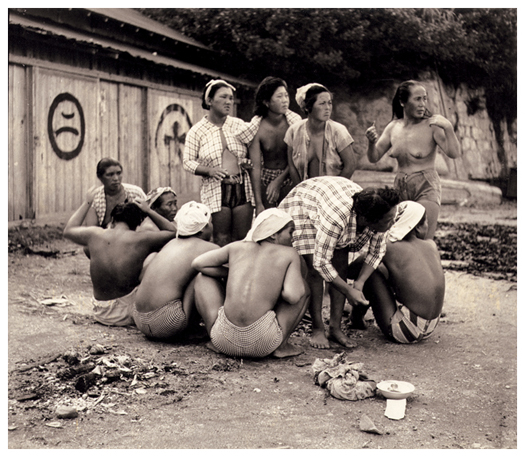
Foto: Yoshiyuki Iwase
Writer Hilary Mantel is virtually unknown in The Netherlands, but in the UK she is considered one of the most important contemporary writers. Her new novel Wolf Hall has now been nominated for the prestigious Booker Prize. About time she was properly introduced.
Why do so many babies die in Hilary Mantel’s novels? The writer seems startled by this question. “They do, don’t they?”, she says. Then, after a moment of silence: “I’ll stop that. I will make sure that it never happens again. You don’t want something like that to become your trademark.”
Death in Mantel’s novels usually arrives without much ado, often in a moment of carelessness, heedless, casually. Mantel is averse to big emotions and large gestures. One of the main characters in her first published novel, Everyday is Mother’s Day (1985), Evelyn Axon, believes the baby of her seemingly retarded daughter Muriel is a ‘changeling’, left by gnomes who stole Muriel’s real child. Evelyn puts the child in a carton box, which she lets sink in a nearby canal, hoping the gnomes will give back the real child in return. Mantel writes:
They waited on the bank for ten minutes. It was quite dark now. “It must be dead,” Evelyn said at last. “They won’t give you anything in exchange for a corpse. Well, I did the best I could for you, Muriel.”
And that is the end of Muriel’s baby. Nobody cares. Except for Evelyn and Muriel nobody even knows the baby existed. Only social worker Isabel Field suspects something, but Evelyn succeeds in keeping her away from Muriel for a long time.
It is exactly this emotionless hypothermia in which Mantel describes her tragedies that gives them such a harsh impact. The same goes for the missing child of the missionary couple Ralph and Anna Eldred in A Change of Climate (1994). What hurts the most in this novel, is what isn’t mentioned.
Mantel is a master in creating a tension by means of what isn’t there, ir isn’t visible, or may not be mentioned. The strength of her thriller Eight Months on Ghazzah Street (1988) lies in what the main character Frances Shore, a Western woman in Saudi-Arabia, does nót know. Virtually locked up in her apartment she seems to loose her sanity and it stays unclear for a long time whether the horrible things happening in the vacant apartment above her own are real or a figment of her own imagination.
Thorough unbeliever
Evil is present everywhere in Mantel’s work. Even in her relatively light-footed novel Fludd (1989), about the romance between a doubting nun and a rebellious priest, one can hear the Devil breathing from behind a closed door. In her autobiography Giving up the Ghost (2003) Mantel describes an experience she had as a seven year old. It was a formless, invisible presence of Evil in her backyard, which took possession of her ‘within the space of a thought’ and ‘set up a sick resonance within my bones and in all the cavities of my body’.
It is not the only metaphysical experience she describes. The book starts with a ‘flickering’ on the staircase which Mantel says she ‘knows’ is the ghost of her stepfather, and a description of a ‘constant, moving backdrop of tiny skulls’ which dominated her field of vision for a while during her childhood.
“There were other strange experiences”, Mantel says. “Wholes in the world, patterns of light and so on, the sense of a presence of someone being always on my left hand side whom I couldn’t quite see. Sometimes, when I need to get up early in the morning, someone calls ‘Hilary!’ as it were from a room away. But I never hallucinated and I don’t see things in the way that I see you. I wouldn’t want to sound insane.”
Mantel’s experiences are caused by migraine, which first developed when she was eighteen, and which was made much worse for a time by the medication to combat endometriosis, a long-running gynaecological condition which causes internal bleeding and scarring.
“The neurologist Oliver Sacks has written a book, Migraine, which saved my sanity because it showed me how strange and varied the effects could be and no, I wasn’t going mad. Sacks acknowledges that this condition can bring about a disturbance or reorganisation of consciousness. For some people it is just a headache. For others it is an almost mystical experience. Certain migrainous states are quite close to epilepsy, which as we know is sometimes a disorder of the religious person and the mystic – or as a reductionist would say, religion is a disorder of the epileptic.”
Mantel has been raised a Roman catholic, but since she was twelve she has been a “thorough unbeliever”. “Having had that experience as a little girl it made the things I was being taught about religion in school pretty much irrelevant. They seem beside the point. But it’s not so easy to shake early conditioning. And I think being brought up a catholic from the cradle, it does give you a strong sense of otherworldly things. From your earliest years, you’re being asked to think about some other reality, which is more important than the reality you live in everyday. You learn early on that what you see is not all there is. It cuts against you taking the world literally, which is absolutely essential for becoming a writer. So I can’t regret having been brought up that way. In Every Day Is Mother’s Day I chose this epigraph from Pascal: ‘Two errors: one, to take everything literally: two, to take everything spiritually.’ That could really be the epigraph for all my books, and indeed for my life.”
Alchemical point
Her first novel, A Place of Greater Safety, a historical novel about the French Revolution, was initially rejected (eventually it was published in 1992). She had put the book aside and moved on. But then she started to have a recurrent dream in which she was a midwife who was responsible for the death of a child. “The dream was so insistant that it called me back to the book.”
“I don’t want to push this metaphor of working on a book as carrying a child”, she says, “but in some ways, when you have a proliferation of ideas, you’re always conscious of selecting some and not others. Books are not born, as it were, but they do linger around as unborn children.”
It’s all about potential, Mantel explains. You never know what it might have become. In her autobiography she introduces Catriona, the daughter she and her husband fantasized about, but who was never born. ‘I have a mental picture of her’, Mantel writes:
which I have built like one of those criminal profilers whose formulations – let’s be honest – never fit too well. She would be nothing like me at all. She would be strong like my mother, broad-shouldered like my husband, with that milky Irish skin that freckles but never tans. I see her small competent hands, chopping an onion; making unwritten dishes, which she has never been taught to make.
Catriona is one of the many ghosts that haunt her autobiography, in fact her whole work. “Not just in the sense of spirits of dead people, but also the choices you didn’t make, and the paths you didn’t go down, and the ghost of your own potential self in a way. Because if you have made choice B instead of choice A, you will be a different person. And what dictates the choice is sometimes so small, so incidental. Of course a novelist is bound to be fascinated by this.”
A schoolmate of Mantel died in a traffic accident when she was nineteen. “She’s one of these people who go on in my mind. I think and think about the point where she was on the pavement, and then the point where she was in the traffic, and that tiny, tiny point in between and how it could have been different. What would she have become, how the world would be if she were sitting in that chair. So I think you become preoccupied by this moment by moment contingency. What it is, I always try to secure the very moment when things change. This node, this alchemical point, where one things transforms into another and can’t be turned back.”
Sardonic wittiness
Dead babies, missed opportunities, unrelenting fate. It is a black world Mantel paints in her world. Blacker than black, ‘Beyond Black’, as is the title of her penultimate novel (2005). The main character is a paranormal medium, Alison, who was abused and prostituted by her mother as a child. She is haunted by horrible memories of the psychopaths that surrounded her mother. One of them, an exceptionally malicious piece of scum named Morris, becomes her contact with the afterworld after his death. He says he never saw God there, but he did meet the Devil.
How does the reader go through four hundred pages of this misery without killing himself? It is Mantel’s black humour that does the trick. Her books are irresistibly funny. Accurately she puts down humanity in all it’s banal stupidity, with hypothermic, sardonic little sentences like: ‘Coffee? she sang. A few drips from the poised pot leaked onto the plans of the Frobisher, and widened like a fresh faecal stain’.
In Beyond Black Alison gets into touch with Princess Diana’s ghost, who asks her to give her love to her sons, but she can’t remember her names: ‘Oh, fuckerama! Whatever are they called?’ After their deaths people keep on being the same dumb assholes they were when alive. ‘You don’t get a personality transplant when you’re dead. You don’t suddenly get a degree in philosophy’, Alison observes.
Eight Months on Ghazzah Street is full of the same sardonic wittiness. When Frances talks with her Pakistani neigbour Yasmin about the stoning to death of an adulterous woman about which she read in the paper, Yasmin assures her that people are not really stoned to death anymore. ‘They don’t actually stone the woman to death, she said. Not nowadays. They just throw a few stones, as a ritual, and then somebody shoots her.’ This cheered me enormously. I had to bite my tongue to stop myself saying, oh well that’s all right then isn’t it, very merciful.’
“The humour is a way of dealing with the absurdity of life. It’s a part of the characteristic of the part of the country I grew up in”, Mantel explains. “I suppose my trade is to push people a little further than they want to go and of course the humour helps towards that. Because people laugh and then they think: but should I be laughing?”
Tyrants and resistance heroes
And last but not least Mantel’s work is also very political. A Place of Greater Safety is a meticulous study of the private lives of three heroes of the French Revolution: Maximilien Robespierre, Georges Danton and Camille Desmoulins. Everyday is Mother’s Day is a social comment, an indictment against social work and bureaucracy in the UK in the Thatcher era. Eight Months on Ghazzah Street deals with sexism and racism, as well as the Western opportunism in face of fundamentalist Islam. Note that this book appeared a year before the fatwah on Salman Rushdie was issued. A Change of Climate describes the consequences of South-African Apartheid. Fludd deals with powergames and resistance, in Beyond Black Mantel denounces the narrow-minded materialism of the Generation Y and in virtually all of her books Mantel satirizes the emphatically professed, dumb indifference of the working class. Her second historical novel, The Giant, O’Brien (1999), is about a clash of cultures and values – England and Ireland, faith and science.
“I have always seen myself as an intensely political writer, deeply concerned with social justice and natural justice”, Mantel says. “I think if there’s one basic theme I have it’s power – who has it, who can get it, how it’s used and taken away. I am deeply interested in how the political process operates at all levels, from the nation to the family, and it’s that which makes me write so much about childhood. Because there is a power-struggle within many, perhaps all families which resembles the power struggle in wider society. I think in many families you find a terrible will to power is manifest – within in a family you find tyrants, heroes of the resistance, victims, collaborators, everyone falling into their role, but changing roles from time to time. If you are born into such a family and you survive it, you have already had your political education.”
Myth and legend
Her new novel Wolf Hall does indeed start from the childhood of an influential politician, Thomas Cromwell, chief minister of monster king Henry VIII. “From the first page the novel has ‘shown’ itself to me, presenting very vivid pictures”, Mantel says. “It’s more intimate in feel than most historical fiction because you are always looking through Cromwell’s eyes. On very rare occasions, I change the viewpoint, and give an overview, as if I were looking down from a great height, but most of the action is seen in a close, personal way, as if Cromwell himself is the storyteller.”
This book she enjoyed writing the most, she says. “Of all my novels it is the most ‘me’. It is about power and politics, but also myth and legend, and it notes the fact that even five hundred years ago there was an easier flow between these different modes of thought.”
It was also a difficult book to write. “Because over the years so many novelists have written about this period in English history, usually in a very romantic way. But nobody has tackled it from the angle I am tackling it from. I have tried to catch the feel, the texture, the experience from the inside of the historical events. I hope it is one of these novels that gives the reader a world to live inside for the space of reading it.”
She is already working on the sequel: The Mirror & The Light. “It was intended to be one big book, but soon I saw the impossibility of it; however, I didn’t know where it should break. I then decided to end Wolf Hall with the execution of Henry’s personal advisor Thomas More, because I realised what a personal crisis, as well as a political crisis, the year 1535 represented. And I wanted the More episodes to be played out for their full value.”
The Mirror & The Light deals with the five years after that, until Cromwell’s execution in 1540. “Of course, I will need the second book to stand up in its own right, and that will pose certain technical problems, as I reintroduce characters and information. But that’s my problem.”
A Dutch version of this interview was published earlier this year in Vrij Nederland

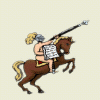
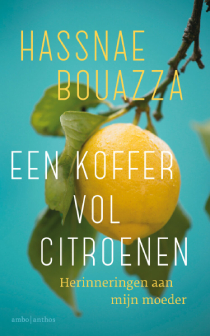
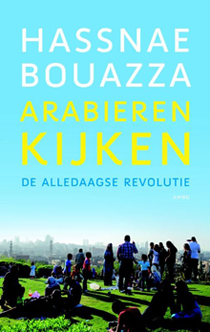
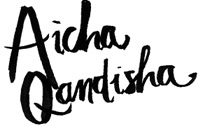
 RSS
RSS